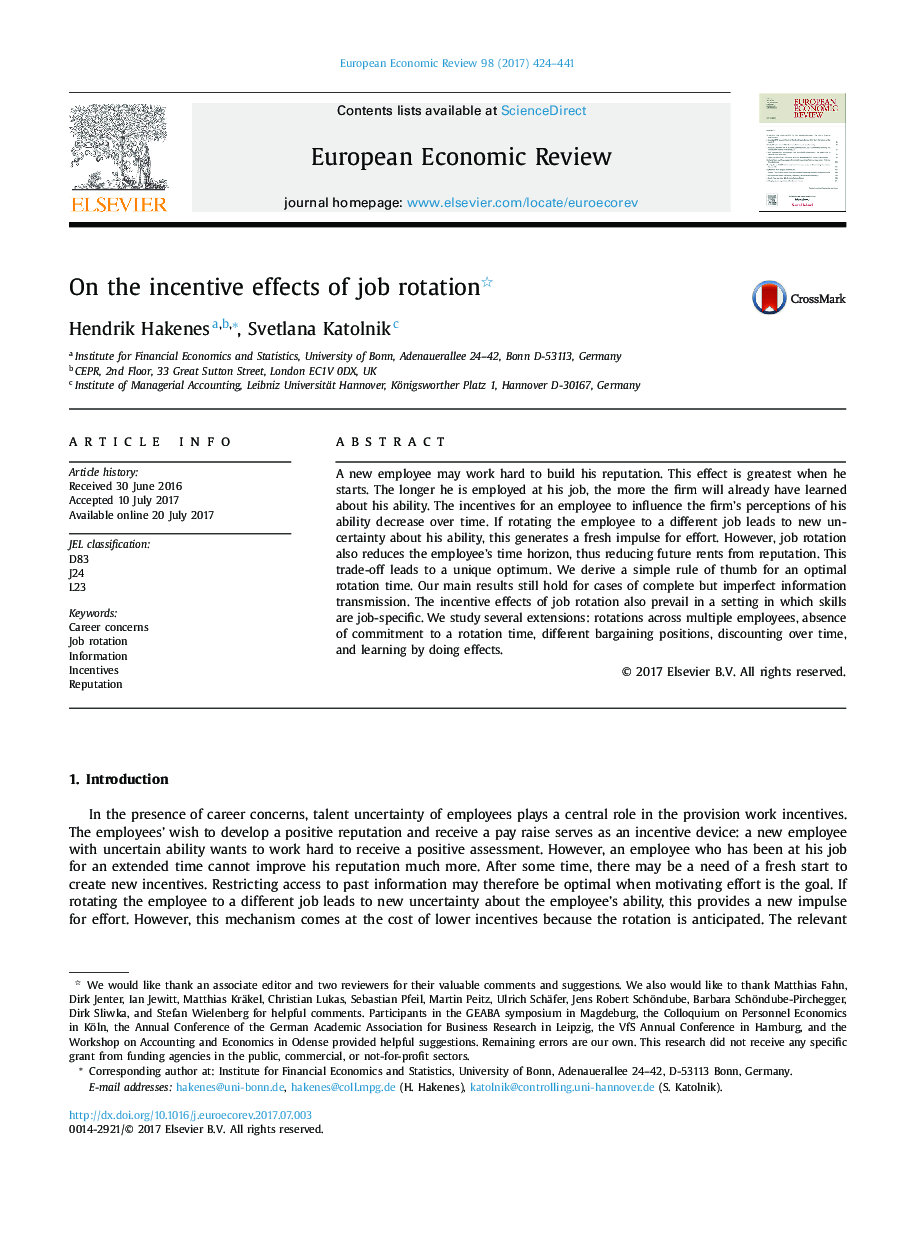| Article ID | Journal | Published Year | Pages | File Type |
|---|---|---|---|---|
| 5066291 | European Economic Review | 2017 | 18 Pages |
A new employee may work hard to build his reputation. This effect is greatest when he starts. The longer he is employed at his job, the more the firm will already have learned about his ability. The incentives for an employee to influence the firm's perceptions of his ability decrease over time. If rotating the employee to a different job leads to new uncertainty about his ability, this generates a fresh impulse for effort. However, job rotation also reduces the employee's time horizon, thus reducing future rents from reputation. This trade-off leads to a unique optimum. We derive a simple rule of thumb for an optimal rotation time. Our main results still hold for cases of complete but imperfect information transmission. The incentive effects of job rotation also prevail in a setting in which skills are job-specific. We study several extensions: rotations across multiple employees, absence of commitment to a rotation time, different bargaining positions, discounting over time, and learning by doing effects.
